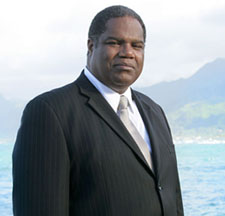 |
Marcus H. Martins, Ph.D. Professor of Religion & Leadership Former Dean, Religious Education Office:
Stake Center # 182-B |
Religion
324
The Doctrine & Covenants
 |
Marcus H. Martins, Ph.D. Professor of Religion & Leadership Former Dean, Religious Education Office:
Stake Center # 182-B |
Click
Here to See the Course Schedule & Supplemental Readings
|
Faculty
of Religious Education
PLO
- Program Learning Outcomes:Learning Outcomes
1. Knowledge about and understanding of: a. Eternal
Family
b. Foundations of the Restoration c. Jesus Christ & the Everlasting Gospel d. Teachings and Doctrine of the Book of Mormon e. Other scripture & historical information 2. Ability to: a. Ask
meaningful questions to use appropriate tools and resources for
answers, including revelation (information literacy)
b. Find answers to own questions (resolve own concerns: study, faith, prayer) c. Ask meaningful questions to read texts closely and in light of historical context and current prophetic teachings d. Reflect for personal application (likening of scriptures to self) e. Use good evidence and reasoning to teach and help others f. Become a more faithful disciple of Christ (coming unto Christ, yielding to the Holy Spirit, putting off the natural man, becoming a saint through the Atonement of Christ) |
|
Class Format I do not lecture--in the traditional sense of the word--very often. Instead, most of my classes are typically dialogue-driven; more like a group conversation, or like a Q&A (question-and-answer) session. |
|
Required Materials
|
Assignments & Grading Policy
Contrary to popular (and false) belief, I consider that an excellent final grade should be the result of excellent performance both at the Testing Center and in the classroom. An "A" should not be given simply because someone is "nice" (whatever that means) or has a testimony of the gospel. That high grade should be reserved for those who read all the assignments, attend class regularly, participate in classroom discussion frequently, and study for the exams diligently. This is the breakdown of the total points possible in this class:
Midterm Exercise
Response Paper
Final Exercise
Class ParticipationTotal Points
150 points
150 points
200 points
100 points (Attendance, Comments)600 points
The final grades will be assigned according to the following scale:
A 585-600 B- 525-539 D+ 460-474 A- 570-584 C+ 505-524 D 445-459 B+ 555-569 C 490-504 D- 430-444 B 540-554 C- 475-489 F 001-429
Final grades will not be determined by percentages shown on the Canvas system. But you will be able to estimate your final grade by observing this grading scale.
|
Weekly Attendance and Online Quizzes Attendance and participation in the classroom are required, according to current university policies that reflect recommendations from federal and state health authorities.
Response Paper
|
| Additional Information | |
|
Official Communications
|
|
|
Disabilities & Special Circumstances
|
Mental Health ResourcesAs a college student, there may be times when personal stressors interfere with your academic performance and/or negatively impact your daily life. If you or someone you know is experiencing mental health challenges at BYUH, please contact Counseling Services at (808) 675-3518. Services are free and confidential. For more information, visit https://counseling.byuh.edu/. |
House
Rules
Classroom Etiquette
Laptops and Cell Phones in Class For those among you who are "techno buffs": you are
welcome to download the readings to your laptop or access them online
in class. You are welcome to share with
the class the comments and questions your online friends may send
you. All such communications must be intelligent, respectful
of others, and real contributions to our education. |
ParticipationClass participation will be judged on both the amount and the quality of your questions, comments and contributions to the progress of your peers. The breakdown for those 100 precious points is the following:
A lot of money and resources are spent in your maintenance in college. So, the least one can do is to attend classes and try to gain the most from them. Occasionally, circumstances may lead you to miss one class period. Absences due to illness (with a doctor's note), job interview, field trip in another class, or due to university performance groups, will be waived, but you need to inform me immediately. In all other cases there will be a penalty of minus 15 points for each absence.
Our objective with this exercise is to learn from insights shared in class as we study the doctrines of gospel of Jesus Christ and apply them to our lives. These "comments" may take the form of ideas, opinions, questions, or short accounts of experiences, and they can be made in class or electronically via e-mail to me. Our class periods should be seen as opportunities for mutual enlightenment. I encourage and expect many exchanges of ideas and gospel-based life experiences. If you consider yourself shy, I recommend that you put your shyness in a box and mail it to the bottom of the Atlantic Ocean (the Pacific isn't far enough). While in college, take advantage of the resources available to you and "re-engineer" yourself, thus becoming an active participant in a society. Semester-long silence will be rewarded with 0 (zero) points. Frequent "parallel conversations" (i.e. chatting with classmates often about matters unrelated to the class) may be penalized with a 5-point discount.
|
Copyright
© 2000-2023 - Marcus H. Martins